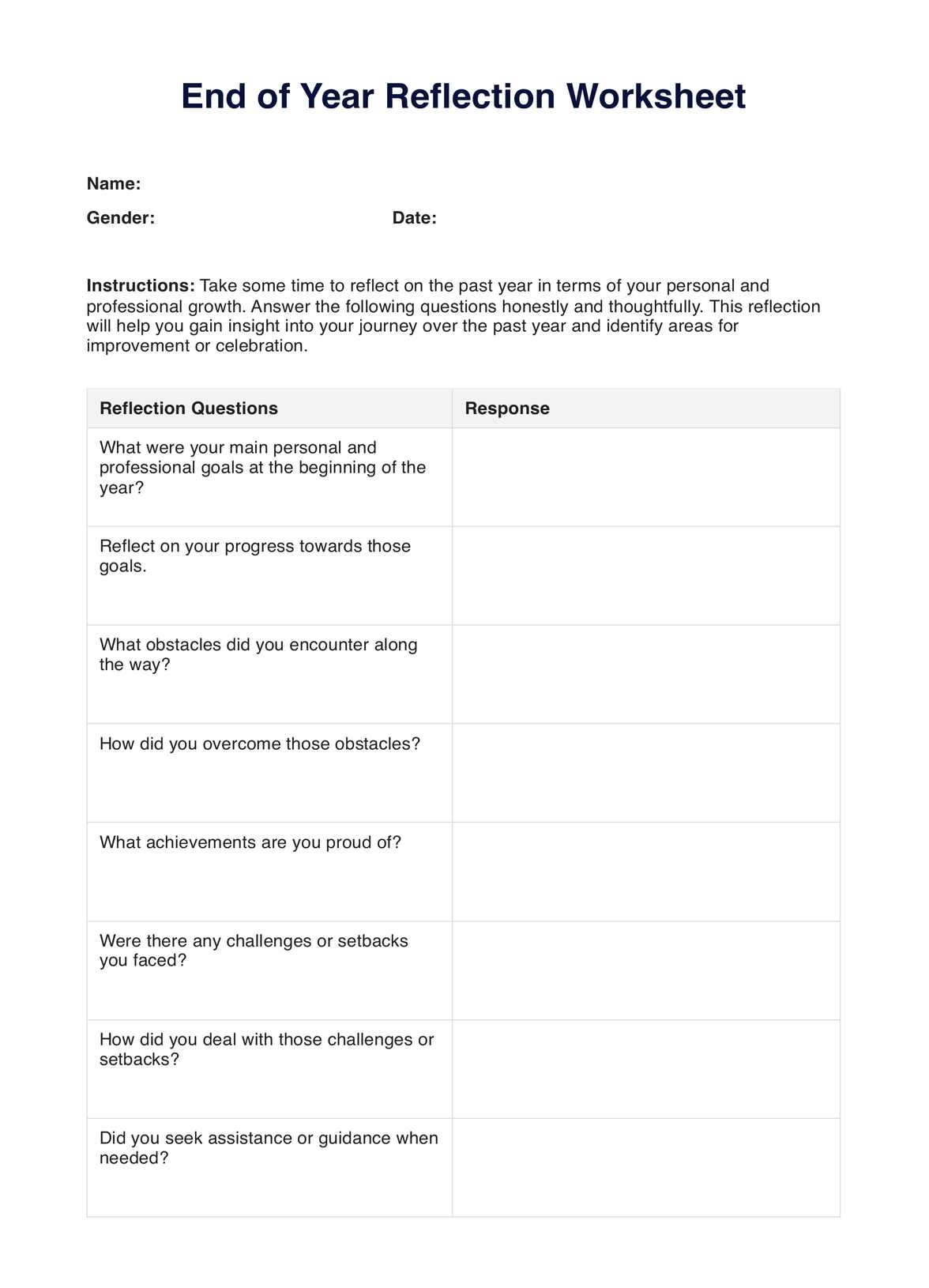It can benefit individuals of all backgrounds and professions, as it offers a structured opportunity to assess personal growth, achievements, and areas for improvement, fostering self-awareness and strategic planning for the present and future.

End-of-Year Reflection Worksheet PDF
Gain a deeper understanding of your journey over the past year with our End-of-Year Reflection Worksheet PDF. Reflect, evaluate, and plan for growth.
End-of-Year Reflection Worksheet PDF Template
Commonly asked questions
It will most likely be effective during the year's final weeks, providing individuals ample time to review the past year's experiences, set goals, and prepare for the upcoming year with a renewed sense of purpose and direction.
The duration of reflection varies based on individual preferences and the depth of reflection desired. However, dedicating at least a few hours to reflect on key accomplishments, challenges, and lessons learned can yield significant insights and set the stage for personal growth in the year ahead.
EHR and practice management software
Get started for free
*No credit card required
Free
$0/usd
Unlimited clients
Telehealth
1GB of storage
Client portal text
Automated billing and online payments











